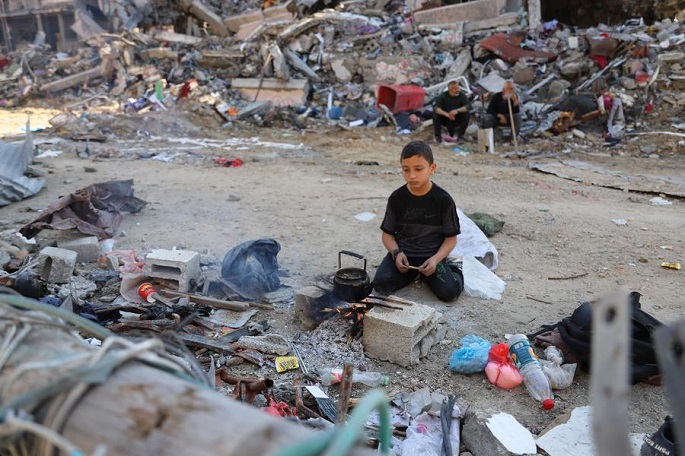UNGA convenes meeting following U.S. veto on Gaza in SC
Published : 11 Jan 2024, 01:03
The UN General Assembly (UNGA) on Tuesday convened to discuss the United States' use of its veto power in the Security Council the previous month, reported Xinhua.
UNGA President Dennis Francis emphasized that "saving civilian lives" should be the foremost priority in Gaza.
UNGA Vice President Cheikh Niang of Senegal, wielding the gavel in the General Assembly Hall and acting as deputy for Francis, delivered a statement on his behalf.
Francis urged all warring parties in Gaza to "fully implement" the council resolution as well as the UNGA resolution of Dec. 12 calling for a ceasefire, arising from the UNGA's reconvened Emergency Special Session.
On protecting civilians, Francis urged all member states "to keep this shared goal to the forefront during today's debate."
In the wake of the Ukraine crisis in early 2022, the UNGA adopted a resolution designed to foster greater cooperation with the Security Council.
The resolution stipulates that whenever a veto is exercised in the Security Council, it automatically initiates a meeting and debate in the General Assembly to examine and deliberate on the action.
The veto is a special voting power held by the permanent member states on the council, whereby if any one of the five -- China, France, Russia, Britain and the United States -- casts a negative vote, the resolution or decision automatically fails.
The UNGA resolution which introduced this extra scrutiny calls on the UNGA president to convene a formal debate within 10 working days, so that the 193 members of the wider body can have their say.
The intention behind it is to give UN member states the chance to make recommendations, which could include the use of armed forces, to maintain or restore peace and security on the ground.
Tuesday's meeting came on the heels of the U.S. vetoing on a Russian amendment prior to the successful passing of last month's council resolution on Gaza.
The Security Council on Dec. 22 passed a key resolution, emphasizing the immediate acceleration of aid deliveries to the distressed civilians in Gaza, but without the original call for an "urgent suspension of hostilities" between Israel and Hamas.
Riyad Mansour, permanent observer of the Observer State of Palestine to the UN, said that he was standing before the UNGA "representing a people being slaughtered, with families killed in their entirety, men and women shot in the streets, thousands abducted, tortured and humiliated, children killed, amputated, orphaned -- scarred for life."
He said "no people" should have to endure such violence and it must stop.
No one can understand that the Security Council is still being prevented from calling for an immediate humanitarian ceasefire, he added, while 153 states in the General Assembly have called for just that, along with UN Secretary-General Antonio Guterres.
Israel's assault is without precedent in modern history, he said, calling it "a war of atrocities." During these last 90 days, 11 Palestinians have been killed every hour, including seven women and children, he told the UNGA.
Anna Evstigneeva, deputy permanent representative of Russia to the UN, said that Washington had been guilty of playing an "unscrupulous game" to protect Israel's actions in Gaza, when it used the veto in the Security Council on Dec. 22.
She said the real aim of the U.S. veto was to push through its aim of giving Israel free rein, and "deliberately undermine multilateral efforts under the auspices of the UN to serve its own geopolitical interests in the Middle East."
Evstigneeva said that "the sad result" of this is that over the past three months of escalation in Gaza, the council has only been able to adopt "toothless" resolutions.
A clear demand from the Security Council for a full ceasefire remains an imperative, she said. Without it, implementing the council's decisions in Gaza "is just not possible."
She said the spiral of continuing violence is "clearly catastrophic" and will continue until the root causes of the conflict are properly addressed, through a two-state solution.
Under current conditions, "our shared goal is to assist the parties in establishing the negotiation process." A "collective diplomatic mechanism" is required and one of the most pressing tasks is the restoration of Palestinian unity," she added.


